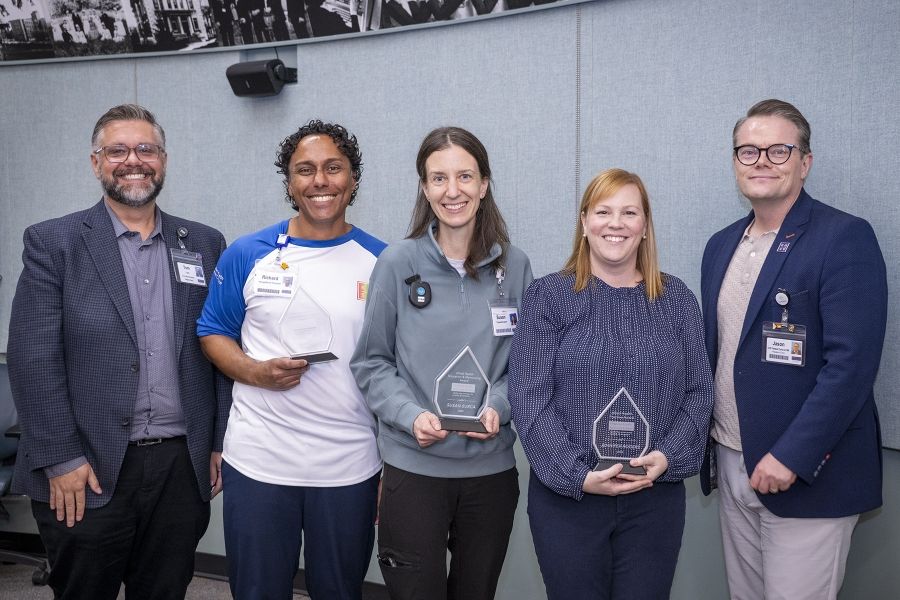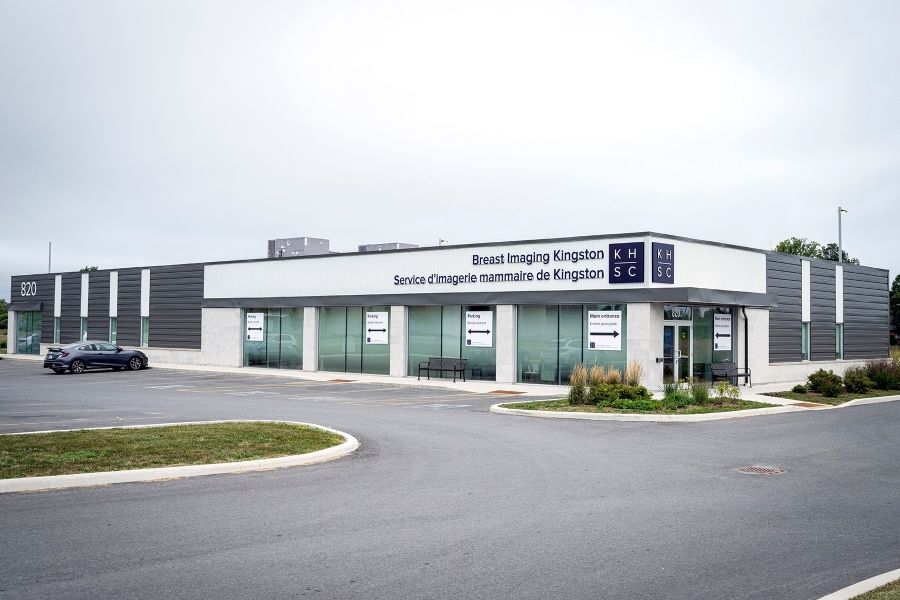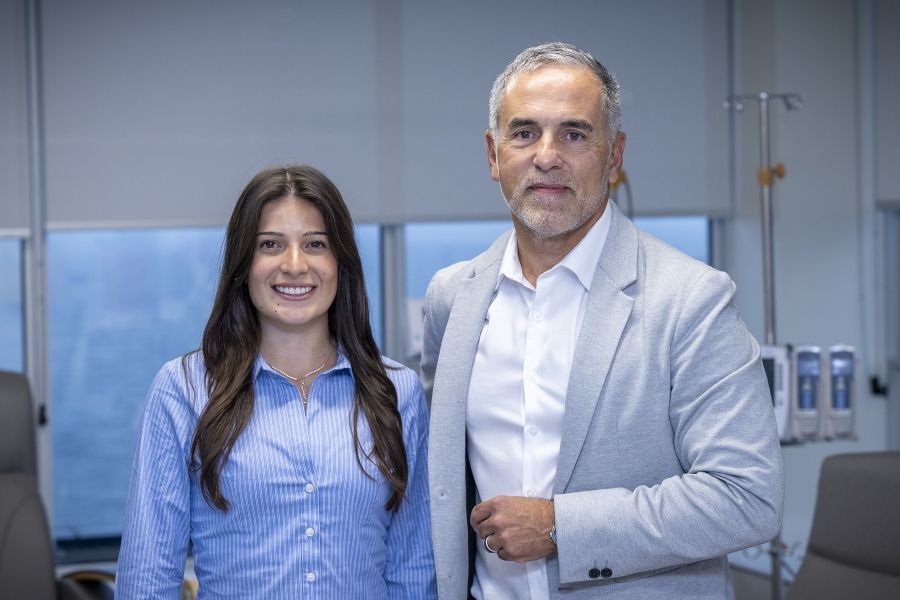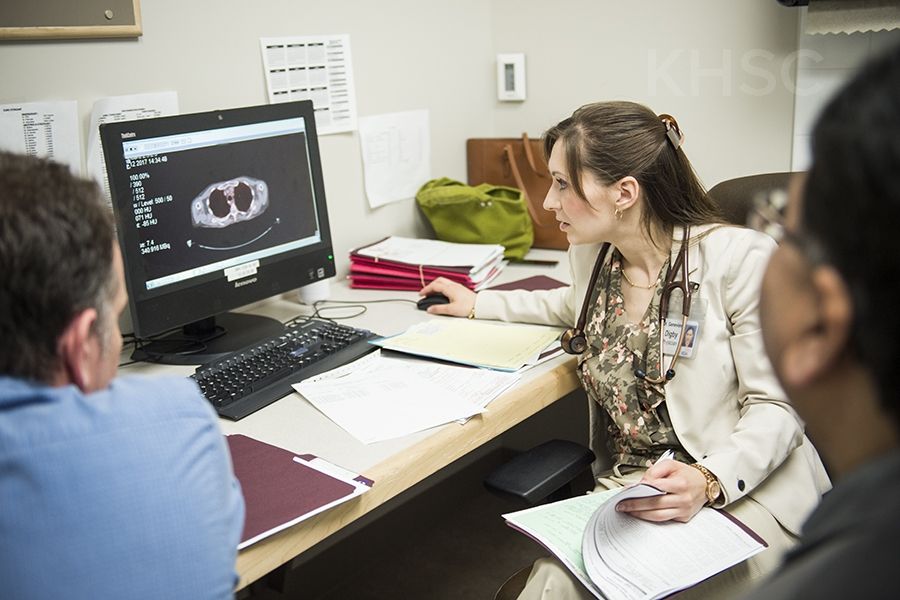
Learning that you have cancer and then waiting to hear about a treatment plan is a period of time fraught with anxiety and questions for many patients. However, a new multidisciplinary clinic for patients with lung cancer is working to eliminate that waiting period. As part of the lung diagnostic assessment program (LDAP), the clinic enables respirology patients who have a confirmed or strongly suspected case of lung cancer to meet with their specialist immediately following their cancer diagnosis.
“We heard from Patient Experience Advisors that when they are told they have a lung cancer diagnosis they are often scared and have many questions about what the next steps are for them,” says Dr. Genèvieve Digby, a physician with Kingston Health Sciences Centre (KHSC) and co-lead of the multidisciplinary clinic. “Having this clinic means that patients don’t have to wait to meet their specialist and can begin the conversation immediately on what their treatment plan will be.”
Based out of the Hotel Dieu Hospital site, the clinic began as a pilot project to measure how well it could help reduce treatment delays and improve efficiency for patients. Before the clinic was launched, when a patient received a cancer diagnosis they would need to wait for an appointment to come back to the Cancer Centre at the KGH site to meet their specialist. Now, this clinic has reduced the median wait time from referral to Oncology assessment from 13 days to zero.
"In addition to helping reduce anxiety and wait times for our patients, there is also a huge staff benefit involved with this clinic,” says Dr. Andrew Robinson, co-lead of the clinic. “We can work as colleagues to make care plans together, resulting in more efficient decision-making. It further encourages our team concept of care and can reduce unnecessary or duplicate tests. It is a great example of how we can work together to create an effective and efficient health care system.”
Early indications show that this clinic is on the right track.
“We’ve heard lots of positive feedback from patients,” says Dr. Digby. “One patient shared that he received the right amount of information at the right time, and he said he hopes other patients will have an opportunity to experience similar positive experiences at this clinic.”
The clinic recently received funding to extend its work and to do further research on the impact it’s having on the patient and caregiver experience, how it can improve outcomes for patients, and how well it uses it’s resources.
“We’re off to a good start and are happy to see how it’s supporting smoother transitions for patients and overall improving their experience,” says Dr. Robinson. “As we move forward, we want to grow our team concept of care and expand on the multidisciplinary nature of this clinic by involving additional specialties and disciplines.”
Gallery
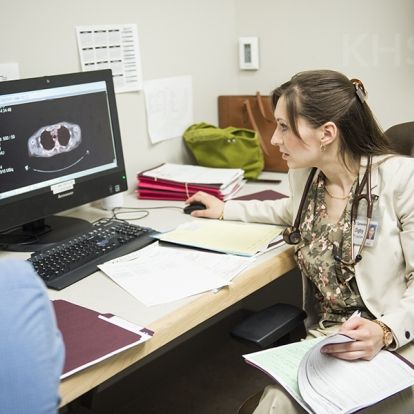
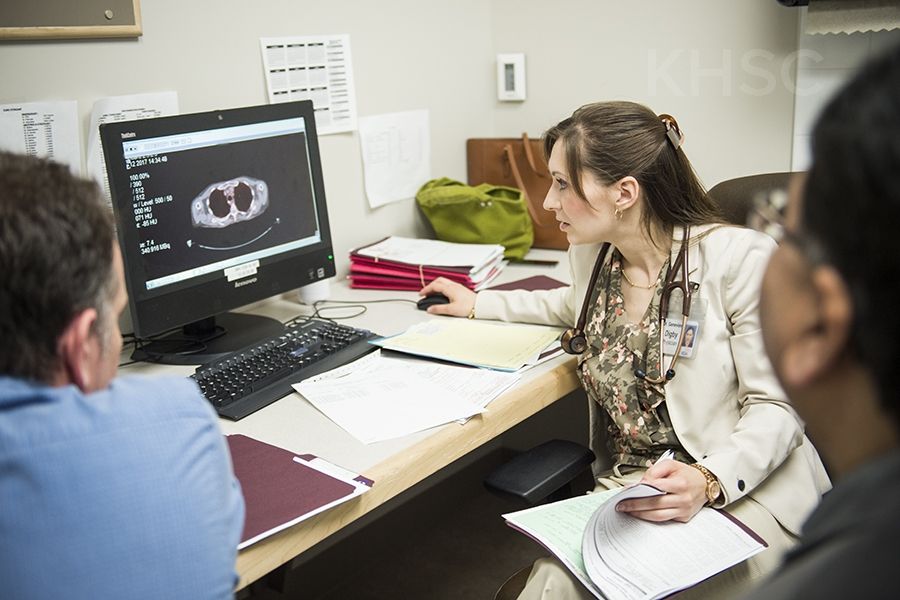
Dr. Genèvieve Digby meets with a team to discuss a care plan for a patient visiting the clinic immediately after being diagnosed with lung cancer

